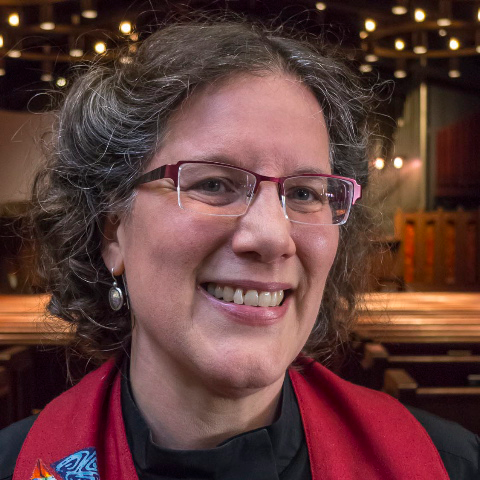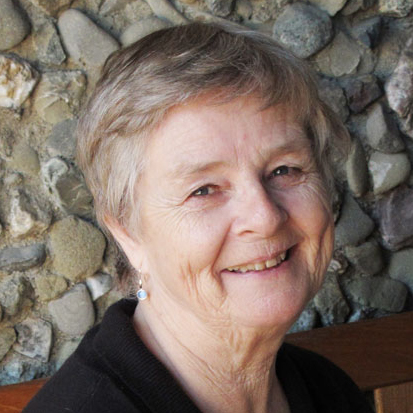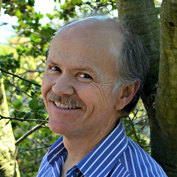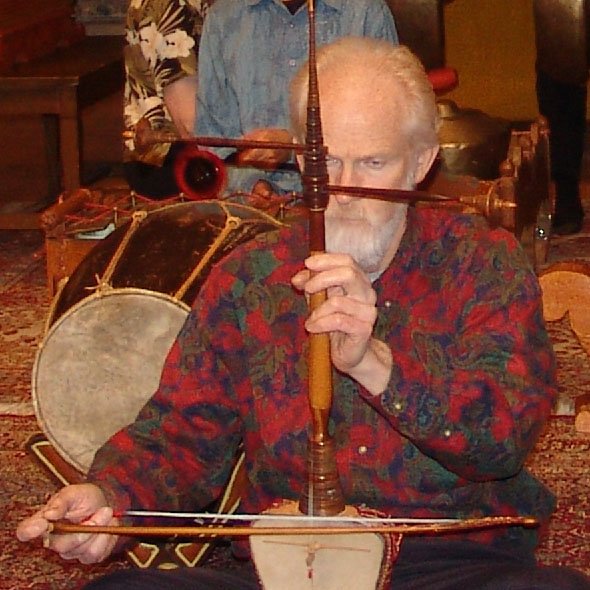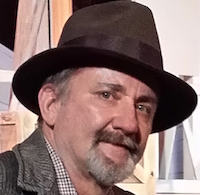Gearing Up for the Greater Good
A week ago Monday, January 27, Pete Seeger died.
One week later 1000 devoted, grateful lovers of song and social change lined up outside Berkeley’s 400 seat Freight and Salvage Coffee House to honor our great American song leader and peace maker.
The line started around noon. By 5:30 p.m. the free community celebration was “sold out.”
Impromptu banjo, mandolin and guitar players, including Betsy Rose, led the hundreds still standing in the street in singing songs many had sung since childhood at vigils and rallies and to their own children.
Young and old shouted out requests ~ ”Last Night I Had the Strangest Dream,” “We Shall Not Be Moved,” and “I Dreamed I Saw Joe Hill Last Night.”
Spontaneous singing in the streets was what Pete Seeger was about. Betsy Rose said, “We sang to him, and thanked him, and knew he was there with us. I doubt that many of us regretted that we weren’t inside the hall…This was exactly where I wanted to be. I learned so much from Pete about inviting voices to join mine, creating a space where shy voices become strong, stumbling melodies become glorious harmonies, and strangers become community.”
Pete Seeger’s life, message and songs were one. When he invited everybody to join in singing, he was saying, about politics and justice and community, “We can all do this together.”
Pete Seeger gave us glimpses of a better world and made us believe in its possibilities.
Today let’s lift our voices in singing and give thanks for Pete Seeger.
[Singing If I Had a Hammer]
Music was Pete Seeger’s tool for justice, compassion and caring.
As a young child, he began playing the ukulele. Later he played the 12-string guitar. When his father took him to a square-dance festival, he took up the five-string banjo.
His banjo carried the motto, “This machine surrounds hate and forces it to surrender.”
He sang for the labor movement in the ‘40s and ‘50s. During the McCarthy era, he was blacklisted. He was kept off television. When he was brought before the House Un-American Activities Committee, he lost his livelihood. He lost his sense of living in a democratic society. Still he believed in doing what he believed in and he kept doing it. He never stopped singing.
He sang for civil rights marches and anti-Vietnam War rallies in the ‘60s. Brian Wilson was fresh out of Vietnam in November 1969 when he heard during the Moratorium Day demonstration Pete Seeger sing “Give Peace a Chance.” Seeger interrupted the song with questions, “Are you listening, Nixon?” “Are you listening Pentagon.” Seeger inspired Wilson’s activism. That day with Pete Seeger instilled in him a spirit of noncooperation, nonviolent work for justice. In the 1980s Brian Wilson sat in front of a munitions train in Concord to protest against the shipping of U.S. weapons to Central America for Contra Wars. Wilson lost both his legs.
Seeger sang,
“If you love your Uncle Sam, Bring them home, bring them home.
Support our boys in Vietnam, Bring them home, bring them home.
The world needs teachers, books and schools,
And learning a few universal rules,
Bring them home, bring them home.”
Pete’s song “Where Have All the Flowers Gone?” became an antiwar standard.
[Singing Where Have All the Flowers Gone]
Singer Linda Ronstadt says, “Pete Seeger woke up our consciousness to the power of music to make people aware.”
“Music,” Pete Seeger said, “makes life livable; with music you can survive troubles, understand troubles and do something about your troubles.”
His folk music brought together oldsters from the country and college kids from the cities.
Pete Seeger distrusted commercialism and stardom. He used his celebrity to bring attention to the causes that moved him or the traditional songs he wanted to preserve.
He said he preferred to sing in the schools to any place. “You see those little faces and you can’t give up hope.”
He wanted to cast his lot with the poor people of this world…with the disenfranchised.
Back in 1942, in a song called “Dear Mr. President,” Pete Seeger sang,
“Now, as I think of our great land . . . I know it ain’t perfect, but it will be someday, Just give us a little time… I want a better America, and better laws, And better homes, and jobs, and schools, And no more Jim Crow, and no more rules like ‘You can’t ride on this train ’cause you’re a Negro,’ ‘You can’t live here ’cause you’re a Jew,’ ‘You can’t work here ’cause you’re a union man.’”
The government tried to silence him. Eventually, the government gave him the Presidential Medal of Freedom.
The government tried to discredit him, questioned his patriotism. Decades later, Pete Seeger played a concert in front of the Lincoln Memorial for President Obama’s inauguration.
Pete Seeger met Rev. Dr. Martin Luther King only twice. He lived what Dr. King said, “Violence, a descending spiral, increases hate. Hate cannot drive out hate, only love can do that.”
Pete Seeger adapted the old spiritual “We Shall Overcome” and it became the anthem of the civil rights movement.
[Singing We Shall Overcome]
When asked about his religious or spiritual views, Seeger replied: “I feel most spiritual when I’m out in the woods. I feel part of nature. Or looking up at the stars. [I used to say] I was an atheist. Now I say, it’s all according to your definition of God. According to my definition of God, I’m not an atheist. Because I think God is everything. Whenever I open my eyes I’m looking at God. Whenever I’m listening to something I’m listening to God.”
Pete Seeger’s music influenced Bob Dylan, Bernice Johnson Reagon who founded Sweet Honey in the Rock, Simon and Garfunkel, later Bruce Springsteen.
At a Madison Square Garden concert in New York celebrating Pete Seeger’s 90th birthday, Springsteen introduced him as “a living archive of America’s music and conscience, a testament of the power of song and culture to nudge history along.”
[Listening to Music Ring Them Bells – Bob Dylan]
Centering in Meditation and Prayer
[Listening to Music Scarborough Fair/Canticle]
Pete Seeger dreamed of a boat full of people singing and offering environmental education on the polluted Hudson River. It seemed crazy. Seeger sang, “Give me a boat.” He said people will come to see the boat, they’ll see the trash in the river and they’ll want to change that. The 106-foot-long sailboat, Clearwater, was built. And the Hudson River is cleaner.
In 2010, at the age of 91, Seeger wrote and sang the song God’s Counting on Me, God’s Counting on You, commenting on the Deepwater Horizon oil spill.
On October 21, 2011, at 92, Pete Seeger was part of a solidarity march with Occupy Wall Street.
Seeger died on January 27, 2014, at the age of 94. His grandson said Seeger was still as active as ever, out chopping wood ten days before his death.
President Obama said Seeger has been called “America’s tuning fork.” Seeger believed in “the power of song” to bring social change.” President Obama said, “Over the years, Pete used his voice and his hammer to strike blows for workers’ rights and civil rights; world peace and environmental conservation, and he always invited us to sing along. For reminding us where we come from and showing us where we need to go, we will always be grateful to Pete Seeger.”
On January 18, 2009, in Washington, D. C., Seeger got the crowd singing Woody Guthrie song “This Land Is Your Land” to close President Barack Obama’s Inaugural concert. The singing included two verses not often sung, one about a “private property” sign the narrator cheerfully ignores, and the other makes reference to a Depression-era relief office. We’ll sing those verses today.
Pete Seeger told us this is our land and we, the people, can make it a better one.
[Singing This Land Is Your Land]
Blessing: Invitation to take hands…
Pete Seeger said that singing used to be part of everyone’s everyday life and it could be so again.
Sing while you work, sing while you worship, sing while you play, and sing while you pray.
There is hope for the world, he said. For I am yours and you are also mine.
One blue sky above us
One ocean lapping all our shore
One earth so green and round
Who could ask for more
And because I love you
I’ll give it one more try
To show my rainbow race
It’s too soon to die.
Go tell, go tell all the little children.
Tell all the mothers and fathers too.
Now’s our last chance to learn to share
What’s been given to me and you.
One earth so green and round
Who could ask for more.







